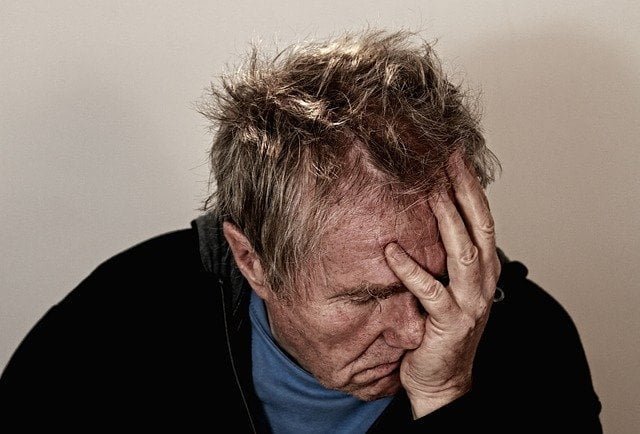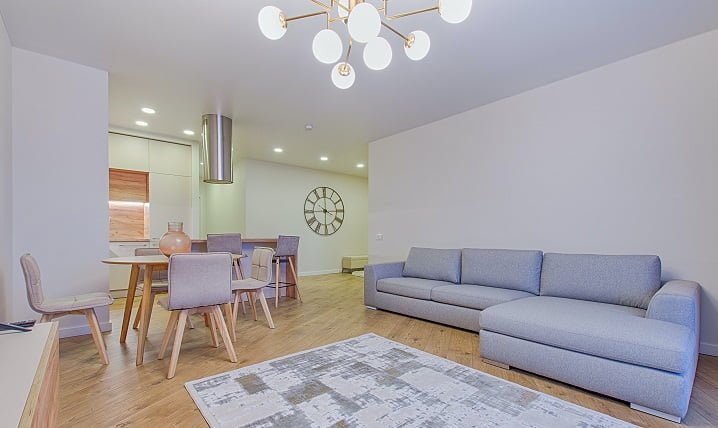Drug & Alcohol Rehab in Lancashire
Quick links for drug and alcohol rehab in Lancashire
- What is Drug and Alcohol Rehab in Lancashire Like?
- How Do I Know When I Need The Help Of A Drug And Alcohol Rehab in Lancashire?
- Can I Force My Loved One to Go to Drug and Alcohol Rehab in Lancashire?
- How Effective is Rehab in Lancashire at Treating Alcohol or Drug Addictions?
- What Are the Benefits of Drug and Alcohol Rehab in Lancashire?
- What Medications May Be Prescribed During Detox at Drug and Alcohol Rehab in Lancashire?
- Residential Vs. Outpatient Drug and Alcohol Rehab in Lancashire – Which is Better?
- Is Drug and Alcohol Rehab in Lancashire Accessible Through the NHS?
- What Are the Alternatives to Going to Drug and Alcohol Rehab in Lancashire?
- How Much Does Drug and Alcohol Rehab Cost in Lancashire?
At Rehab Recovery, we aim to assist you in selecting the most suitable possible detox and rehab clinic in Lancashire.
There exist many different clinics, and if you are not assisted in this process, there is every danger you will make a selection that’s less than ideal.
You may also select a rehab in Lancashire that’s either not suited to treating your specific addiction or one that’s poor value for money. To avoid this scenario, get in touch with Rehab Recovery today.
All rehab clinics we work with in Lancashire are regulated by the Care Quality Commission (CQC). This ensures you receive the highest possible standards of care.
We work with rehab clinics across Lancashire. This means you will be able to access treatment without the need to travel many miles away. This will make life easier for your family when it comes to transporting you to and from the rehab clinic.
This will also make it easier for your family to visit you during your rehab programme.
From 2017 to 2020, Lancashire recorded a high rate of hospital admissions relating to substance misuse.
For every 100,000 admissions, 96.3 of them were a result of drug or alcohol use. For the rest of England, that figure is only 84.7.
2018 saw a large number of alcohol-related deaths being recorded in the Lancashire area, with almost 700 across the year.
Districts such as Blackpool and Blackburn saw considerably higher rates of alcohol-related fatalities than the rest of the UK.
Unfortunately Lancashire also suffers from a significant rate of drug and alcohol crime as well:
| Drug and Alcohol Crime Statistics in Lancashire (2022-2023) | Value |
|---|---|
| Annual Crime Rate in Lancashire | 1.9 crimes per 1000 workday people |
| Crime Rate Compared to National | 70% |
| Drug and Alcohol Crime Percentage | 1.6% |
| Total Drug and Alcohol Crimes in Lancashire | 2.8k |
| Year-over-Year Increase in Drug and Alcohol Crimes | 6.3% |
| Drug and Alcohol Crime Rate in Lancashire | 1.9 crimes per 1,000 working people per annum |
| Rank in England and Wales Counties | 18 out of 54 counties |
Start your recovery journey in Lancashire today by calling our expert team on 0800 088 66 86
What is Addiction Like?

Picture of pills
According to the brain disease model of addiction, drug and alcohol addiction (otherwise known as substance addiction or substance use disorder) is a brain disease of chronic relapsing.
When someone is suffering from addiction, their brain structures have been altered drastically in a way which makes them physically or psychologically dependent on these toxic substances.
These changes can be extremely difficult and dangerous to reverse without the proper medical support.
Should they suddenly stop consuming, then the addiction sufferer’s body will crave for the substances through a range of discomforting symptoms, known as withdrawal symptoms.
What Are the Six Components of Addictive Behaviour?
A study carried out by Daria J. Kuss and Mark D. Griffiths define an addiction as ‘neglect of personal life, mental preoccupation, escapism, mood modifying experiences, tolerance, and concealing the addictive behaviour’.
Don’t let addiction control your life – get help from a drug and alcohol rehab in Lancashire by calling us on 0800 088 66 86
What is Drug and Alcohol Rehab in Lancashire Like?

People climbing a mountain
There is a popular misconception regarding substance abuse that the condition develops as a result of recklessness and irresponsible behaviour.
It is important to acknowledge that this perception of addiction can be very damaging, causing individuals to feel shameful and potentially unwilling to seek help.
The disease model of addiction, however, breaks this stereotype and identifies that an individual’s consumption of drugs or alcohol can interfere with their decision-making, changing parts of their brain and leaving them powerless to their unhealthy behaviour.
In addition, this model of viewing addiction takes into consideration all the factors that increase an individual’s chances of developing an addiction.
These can include inherited genes, which make an individual more vulnerable to developing a physical dependency on a substance, and learned perceptions of drugs and alcohol, which can skew how an individual perceives healthy substance use.
While the disease model of addiction has faced criticism for reducing the role of free will when it comes to addictive behaviour, it is important for treating addicted individuals with the humanity and understanding that they need in order to make an effective recovery.
You can read more about the disease of addiction here.
To learn more about how the issue of addiction is approached at drug and alcohol rehab in Lancashire, call us on 0800 088 66 86
What Are the Signs That An Alcohol Addiction is Present?

Man holding his head and looking tired at a drug and alcohol rehab in Lancashire
It can be difficult to determine whether or not you are suffering from an addiction, especially when considering that your perception may be influenced by a range of factors.
Some of the most clear indicators that you are suffering from addiction is experiencing withdrawal symptoms.
Withdrawal symptoms are what the addicted person experiences when they abstain from their addictive substance – or withdraw from – for a certain period of time.
Typically, people begin to experience withdrawal symptoms from 24 hours after their last intake, but they can last weeks depending on the severity of their dependence.
Physical withdrawal symptoms are typically more dangerous psychological withdrawal symptoms. These symptoms are most often associated with physically addictive substances such as heroin, alcohol, and more.
When experiencing withdrawal symptoms, it is imperative that patients seek the assistance of medical health practitioners at a medically supported facility and rehab.
Here, they will be able to undergo a detox programme in a safe and comfortable environment, whilst being prescribed appropriate medication by an addiction physician.
The withdrawal symptoms associated with physical addiction include but are not limited to:
- Headaches
- Fatigue and lethargy
- Nausea and vomiting
- Diarrhoea
- Muscle cramps
- Trembling
- Seizures
Not only can these cause physical harm, physical withdrawal symptoms can even be fatal when the appropriate support is not available.
While psychological withdrawal symptoms may not have the same capacity to directly kill addicted people, they are still incredibly harmful and must be treated accordingly.
These symptoms are most often associated with addictive substances such as cannabis, cocaine, alcohol, and more.
Some of the psychological withdrawal symptoms include but are not limited to:
- Anxiety
- Depression
- Irritability
- Paranoia
- Insomnia
- Psychosis
While these symptoms may not have the capacity to directly kill someone like a seizure can, these are serious and can lead to irrational behaviour which can easily result in harm, so they must be treated accordingly with medication and recovery at a safe rehab facility.
Beyond withdrawal symptoms, there are also several distinct signs of addiction that you can watch out for.
As well as the obvious physical signs – headaches, vomiting, diarrhoea, nausea, delirium, psychosis, seizures etc., – these also include social and economic consequences.
People who are suffering from addiction may begin to isolate themselves and experience relationships breakdown.
This is often attributed to changes in their personality and mental health, such as their increasing symptoms of irritability, aggression, depression, anxiety, and more.
Addiction will not only affect their relationship with friends, family and loved ones, but it can also lead to great financial strain and housing insecurity.
If academic or occupational performances begin to suffer due to their addiction, they may be struggling to find opportunities or sustain themselves.
In fact, studies show that around 62% of people who are homeless attribute their substance use disorder as the cause of their socioeconomic struggles.
If you’ve started to notice the signs of addiction in yourself or a loved one, get help from a drug and alcohol rehab in Lancashire by calling us on 0800 088 66 86
How Do I Know When I Need The Help Of A Drug And Alcohol Rehab in Lancashire?

Two women sat together having a serious conversation at a drug and alcohol rehab clinic in Lancashire
As a general rule you should worry about the severity of your addiction if it is interfering with your life.
If your drug and alcohol consumption habits are taking priority in your life, you should consider reaching out to a drug and alcohol rehab provider.
Typically, someone is likely to be suffering from an addiction if their drug and alcohol habits are affecting the following factors:
- Relationships and social life: If your consumption habits are affecting the relationships that you have with friends, family members, or a loved one, it is a strong indicator that you are suffering from an addiction and need to seek rehab treatment.
- Mental well-being: Drug and alcohol addiction can lead to symptoms such as anxiety, depression, irritability, lethargy, aggression, and more. If your consumption habits are affecting your mental health, you should seek help.
- Physical well-being: Drinking and doing drugs can severely impact your health and have adverse effects on your cardiovascular health, liver, skin, among other organs.
Do you think you might need the help of a drug and alcohol rehab in Lancashire? Talk it over with our expert team on 0800 088 66 86
The ASAM Criteria – Patient Placement Criteria

Therapy group taking notes together at a drug and alcohol rehab in Lancashire
Treating addiction is not easy, but there are steps that can be taken prior to an individual starting rehab that can improve their chances. Assessing the ASAM (American Society of Addiction Medicine) Criteria is one such step.
This involves having an in-depth look at 6 dimensions of an individual’s substance abuse and using the results to inform the selection of appropriate rehab treatment and intervention.
The 6 dimensions of interest are:
- Acute intoxication/Withdrawal potential – This dimension incorporates everything relating to an individual’s relationship with substance abuse, including their current and previous consumption habits.
- Biomedical circumstances – An individual’s physical health will play a significant role in their withdrawal. Knowing what conditions they suffer from is, therefore, an important thing to consider.
- Mental health – Similarly to the above, an individual’s mental stability can also affect their progress throughout rehab. Gaining a sense of what difficulties and challenges they live with are vital.
- Relapse potential – Looking to the past can be valuable for helping an individual’s progress in the future. This dimension, therefore, looks at what facts from an individual’s history with withdrawal, as well as what aspects of their current life, might complicate things.
- Living arrangements – Rehab can only go so far, and eventually, every individual in treatment will need to return home. Gaining a sense of what this home life looks like can help inform appropriate relapse prevention tactics.
The DSM-5 Three Levels of Severity

Support group taking notes and speaking at a drug and alcohol rehab centre in Lancashire
The severity of the addiction is a hugely important factor to consider before rehab treatment can begin.
Not only does it dictate what kind of help an individual needs, but understanding how an individual is affected by their condition can go a long way in keeping them safe throughout rehab.
In the Diagnostic and Statistical Manual of Mental Disorders, Fifth Edition, or DSM-5, the severity of the addiction is determined by looking at an individual’s situation and adding up how many of the following symptoms are present:
- Consuming an excessive quantity of a substance
- Not being able to stop excessive consumption
- Ignoring responsibilities regarding work or family life
- Losing interest in previously enjoyed hobbies
- Not being able to focus or achieve at school or work
- Using a substance in unusual situations, such as at work
- Not showing concern when it comes to the consequences of substance abuse
- Having a higher tolerance for a substance
- Experiencing withdrawal symptoms
If two or three of these symptoms can be identified, an individual is only suffering from a mild substance use problem. Four or five indicates a moderate problem.
If six or more symptoms are present, however, then this indicates a severe substance use problem. Individuals in this category are in need of the highest level of support available.
Start your recovery journey today by calling our expert team on 0800 088 66 86
Alcohol Use Disorders Identification Test (AUDITs)

Therapist speaking with a group at a drug and alcohol rehab in Lancashire
Alcohol Use Disorders Identification Tests, otherwise known as AUDITs, are assessments that provide insight into how serious an individual’s alcoholism is.
Addictions to alcohol are among the most serious, so these tests can be instrumental in providing relevant care.
What exactly is an AUDIT?
AUDITs are questionnaires that look into different aspects of individuals’ relationships with alcohol. They are divided into three sections, each focusing on an important area of concern.
Specifically, the sections of an AUDIT go as follows:
- Section one – How much alcohol an individual consumes and how consistent their habit is.
- Section two – How an individual experiences withdrawal and how they have combatted it in the past.
- Section three – What affects an individual faces as a result of their alcohol usage, specifically looking at their physical and psychological sufferings.
How do AUDITs provide results?
When answering the questions of each of an AUDITs three sections, an individual will select their response from a few provided options. Each of these will be worth a certain number of points.
Following the test’s completion, an individual’s answers will be added up and a final score will be calculated. It is this score that indicates how severe their alcoholism is.
Scores of 13 or more are reflective of a severe alcohol dependency. Individuals that get this result require immediate support.
Any score higher than 8 should also be noted with a degree of caution as this indicates individuals are close to developing a dangerous dependency on alcohol.
You can also use the CAGE Questionnaire as a similar method of addiction identification.
Can I Recover From Addiction Without Help From A Drug And Alcohol Rehab In Lancashire?
Without professional help, you will be missing essential components which could help facilitate your recovery.
The integral aspects of professional support which you will be missing include but are not limited to:
- Detox at a medically supported facility
- Medication prescribed by an addiction physician
- Therapy sessions led by a licensed counsellor
- A comprehensive aftercare programme
Although recovery from addiction without professional support is certainly possible, this lack of professional support means that it is very rarely advised.
If you think that you might need the help of a drug and alcohol rehab in Lancashire, talk it over with oiur experts team on 0800 088 66 86
Can I Force My Loved One to Go to Drug and Alcohol Rehab in Lancashire?

Intervention in progress at a drug and alcohol rehab in Lancashire
No, you cannot force someone to enter rehab in Lancashire.
Entering rehab treatment must be done with consent and it must be ethical. However, a loved one can be convinced to enter rehab if you host an intervention.
The objective of an intervention is to gather close friends and family members within the same space as their addicted loved one.
Here, they will be able to take turns in expressing their feelings and their concerns about their loved one’s substance dependence.
More specifically, it is an opportunity to express how their loved one’s addiction has affected their life.
An intervention should not be done independently and should use the assistance of a licensed interventionist.
The licensed interventionist will be able to mediate and ensure that everyone has the opportunity to express themselves and focus on the objective at hand.
How Can I Convince a Loved One to Receive Drug and Alcohol Rehab in Lancashire?

Black and white photo of chairs set up for a group session at a drug and alcohol rehab in Lancashire
Those who struggle with addiction can often experience denial, refusing to see the seriousness of their situation and believing that they do not need medical help. To help this situation, an individual’s family can sometimes get involved.
The most popular way families and friends look to help this situation are to hold an intervention.
This is an event where close family and friends voice their concerns and offer their support in order to encourage an individual to start treatment.
Interventions, however, are difficult to arrange.
There are several aspects of holding one that can be eased with the support of a professional interventionist who knows the local drug and alcohol rehab services in Lancashire.
Planning and arranging
Interventions involve bringing together lots of people and having them work together in order to send a specific message to an addicted individual. This, of course, can be difficult to execute.
Not only do attendees need to be selected, but a place and location need to be established and a time needs to be agreed upon. Once the event begins, everyone will need to say what they have prepared.
A professional can help make these steps easier, and their presence at an intervention can ensure that the overall plan of the event is kept to.
Keeping the right tone
The point of holding an intervention is to show addicted individuals that they are loved and that the people closest to them want them to get better.
Making sure that this tone is established and kept to is tough.
Making an individual feel they are not being attacked is not easy. Addiction can increase an individual’s paranoia, and listening to concerns about their drug or alcohol use can make them frustrated and hostile.
This behaviour can cause attendees of interventions to retaliate, letting the purpose of the event slip away. A professional, however, can correct this and maintain a supportive tone.
Making a point
When in a room with their closest family and friends, an individual can struggle to take their concerns seriously. They can ignore the facts, and even laugh at how ridiculous it all is.
This kind of reaction is likely to steer an intervention off course, but the presence of a professional can help an individual to see that the worries and opinions being voiced to them are serious.
The CRAFT Approach to Intervention

Therapy group talking together at a drug and alcohol rehab clinic in Lancashire
For family members and close friends who want to help a loved one in beating their addiction, a conventional intervention is not the only option. Instead, they can take the CRAFT approach.
With this style of intervention, individuals are helped by their friends and family in a wider sense than just a single event (even though CRAFT can be commenced with a similar type of gathering).
In addition to the usual intervention, CRAFT involves people working to promote an individual’s healthy behaviours by rewarding them.
This tends to mean that they do nice things for an individual when they attend rehab treatment and refrain from substance use.
Conversely, it also involves them punishing negative behaviours. This usually entails not supporting an individual when they face the uncomfortable effects of their drug or alcohol use.
The overall aim of CRAFT is to establish new associations in an addicted individual’s mind. Their addiction tells them that taking a substance will make them feel better, so CRAFT attempts to interrupt this and push a new association between sobriety and feeling good.
Ensure that your loved one gets the help they need from a drug and alcohol rehab in Lancashire by giving our team a call on 0800 088 66 86
How Effective is Rehab in Lancashire at Treating Alcohol or Drug Addictions?

Couple holding hands at a drug and alcohol rehab in Lancashire
Entering a drug and alcohol rehab is the most effective form of treatment for addiction in Lancashire.
Not only will health professionals help you overcome your initial withdrawal symptoms, licensed counsellors and therapists will help you develop long lasting coping mechanisms and lifestyle habits which can help sustain your sobriety for life.
Without the assistance of a drug and alcohol rehab, your addiction will worsen.
Since you will not have the necessary support through the form of medically supported facilities or the expertise of addiction specialists, your addiction symptoms will become more severe with each consumption or relapse.
The earlier that you address your addiction and enter a drug and alcohol rehab, the easier and more effective rehab treatment will be when it comes to recovering.
What Percentage of Alcoholics Recover?
It depends how you want to define the term ‘recover’. Many people who try to recover, even those who enter rehab in Lancashire, end up relapsing.
However, relapse is not a ‘failure’ in the recovery process, but should be considered as a bump in the road of a lifelong process.
In fact, studies show that it takes some people several attempts to fully recover from addiction.
Discover just how effective a drug and alcohol rehab in Lancashire can be by calling us today on 0800 088 66 86
What Are the Benefits of Drug and Alcohol Rehab in Lancashire?

Patients holding hands together at a drug and alcohol rehab in Lancashire
In addition to helping you overcome the physical and psychological symptoms related to addiction, a drug and alcohol rehab in Lancashire will increase your knowledge and awareness of your own mental health, emotions, and behavioural habits.
The benefits of a drug or alcohol rehab include but are not limited to:
- Undergoing medicated detox to improve physically and psychologically.
- Attending therapy with licensed counsellors to improve lifestyle and quality of life.
- Undergo co-occurring treatment to treat other mental health issues such as anxiety, depression, bipolar disorder, schizophrenia, trauma, and more.
- Learn about relapse prevention planning strategies to help you stay sober for life.
- Discover people, resources, and new support systems which can support you for life.
Undergoing therapy sessions such as Cognitive Behavioural Therapy, Dialectical Behavioural Therapy, and other forms of rehab treatment will help you become a rational, constructive, and sober person.
Going to rehab does not only treat your addiction, but a vast range of other cognitive and behavioural problems which are affecting your quality of life, which can be vital as around 70% of patients who enter rehab to treat their addiction also require mental health treatment for mental health issues.
To experince the many benefits of alcohol and drug rehab in Lancashire, give our experts a call on 0800 088 66 86
Will I Need a Detox Programme?

Two people jumping at a sunset a drug and alcohol rehab in Lancashire
Whether from everyday occurrences or the media, nearly everyone has heard of the word detox.
In spite of its frequent use in our society, it can often be misused as a general term for the entire rehab process, or misunderstood completely.
Understanding detox is important for anyone going into rehab in Lancashire.
Not only is it an integral part of the physical treatment of substance abuse, but knowing when detox is required can ensure the selection of appropriate treatment.
What is a Medically Assisted Drug or Alcohol Detox?
A medically assisted drug and alcohol detox is essential for some patients who are experiencing severe withdrawal symptoms due to their addiction.
These withdrawal symptoms can be mild or severe, and many of those symptoms can be directly addressed or minimised through the use of specialised medication.
As described by the American Society of Addiction Medicine, there are three main objectives when it comes to implementing the detoxification process.
These three objectives are to:
- Create a safe environment and facilitate a process of withdrawal which is safe and secure for the patients.
- Put ethics at the forefront of the rehabilitation centres priority and to treat the patient humanely.
- Help prepare the patient towards undergoing comprehensive recovery for their drug or alcohol dependence.
Why Are Detoxes Important?
First and foremost, detoxes are all about keeping individuals safe.
Drug and alcohol dependency is a dangerous condition, and the impact that excessive consumption can have on the body can be lethal.
Detoxes exist to help alleviate individuals of their cyclical behaviour and set them free from addiction. The supervision of doctors also ensures the process is as safe as it can be.
Attempting detox without medical help is possible but not recommended.
The odds of being successful are very slim, and the potential dangers can – when treating alcoholism, for example – be life-threatening.
How Can I Know if I Need a Detox?
Starting treatment at a drug and alcohol rehab in Lancashire is scary, but individuals need to try and find the most appropriate programme for their situation. How to determine whether detox is necessary, however, need not be an intricate process.
Detox is required when individuals have a physical dependency on a substance, so the best way to find out if one is necessary is to assess whether there is a physical reaction when a substance is not taken.
These reactions are known as withdrawal symptoms, and they can range from shaking and headaches to insomnia and cardiac complications. If there is any physical response to sobriety, detox is likely to be needed.
When you get to rehab in Lancashire you will undergo a psychiatric assessment. This is so you will receive the correct rehab treatment to ensure you are on the route to sobriety. This will be done by a psychiatrist or other medical professional.
If you have an alcohol addiction you will need to have an alcohol detox before you can begin any treatment. This means you will likely experience alcohol withdrawal symptoms.
For a physical dependence on a substance, such as alcohol, you will need a medically-assisted detox – this is underseen by a doctor or medical professional. You will also need one of these for heroin withdrawal for example.
After your detox, you may be prescribed Chlordiazepoxide which will help with the symptoms of withdrawal.
Long-term complications of substance abuse include:
- Delirium Tremens
- Hepatitis
- Seizures
- Wernicke Encephalopathy
- Alcohol Withdrawal Syndrome
How Long Does a Detox Last?
It varies from one patient to another, depending on how severe their withdrawal symptoms are.
However, the detox process typically lasts from 7 to 10 days if the patient does not relapse during this time.
Is Detox With No Rehab Possible?
It may be possible to undergo detox without undergoing cognitive or behavioural therapy, depending on the facility.
However, this is highly discouraged and it is dependent on your physical and mental health assessment.
If the results show that you are suffering from a moderate to severe form of substance addiction, you will be heavily advised to undergo the entire rehab treatment programme in order to optimise your recovery and establish lifelong sobriety.
To ensure that you get the help you need from a drug and alcohol rehab in Lancashire by giving us a call on 0800 088 66 86
What Medications May Be Prescribed During Detox at Drug and Alcohol Rehab in Lancashire?

Bottle of pills
During the drug and alcohol detox process, you are likely to be prescribed different forms of medication depending on your withdrawal symptoms.
These medications will vary in their purposes and will be carefully prescribed by an addiction physician according to what sort of symptoms the patient is experiencing.
Pharmacological intervention may be paramount depending on the severity of one patient’s addiction and withdrawal symptoms.
In addition, it is of utmost importance that the medicated detox is carried out under supervision of health practitioners and medical professionals.
Commonly prescribed medications during the detox process include but are not limited to:
- Selective Serotonin Reuptake Inhibitor (SSRI): SSRIs are a form of antidepressant which are often prescribed to treat symptoms of anxiety and depression, which are commonly experienced during the withdrawal stages of addiction. Anxiety and depression are frequently interwoven into substance use disorder, and are common co-occurring disorders, which means the applications of SSRIs can not only minimise withdrawal symptoms but help sustain sobriety.
- Benzodiazepines: Benzodiazepines are a safe and effective form of medication, and is the preferred way to treat patients who are suffering from alcohol withdrawal symptoms (AWS). Examples of Benzodiazepines are diazepam, chlordiazepoxide, and lorazepam. They are also cross-tolerant with alcohol, which means that it can help minimise withdrawal symptoms without actually consuming alcohol. Additionally, Benzodiazepines are proven to reduce the severity of less severe withdrawal symptoms and also more severe symptoms such as seizures and delirium tremens. It also has a quick or rapid onset as well as a long duration when it comes to activity, making it a preferred medication.
- Buprenorphine: Also known as Subutex, is used to treat opioid addiction, such as heroin addiction, for example. During the detox and withdrawal stage, Buprenorphine will be prescribed in order to minimise withdrawal symptoms of pain, reduce cravings, and increase well being. It causes physiological reactions in the body which makes it similar to the effects of other opioids but on a far lesser scale, which means it is far less addictive.
- Naltrexone: Naltrexone is another form of medication which can be prescribed in order to treat drug and alcohol addiction withdrawal symptoms. It is neither an opioid nor addictive, which means the potential of the patient becoming dependent is minimal. Naltrexone blocks the euphoric and sedative effects of particular drugs such as heroin, and it is often prescribed during and after the alcohol withdrawal stages because it can also help someone maintain their sobriety after detox. However, it works best when done concurrently with psychosocial therapy, because it does not entirely minimise withdrawal symptoms the way that other medications do.
To ensure that you get the right medical support to overcome your addiction, call us on 0800 088 66 86
What is Inpatient Drug and Alcohol Rehab in Lancashire?

Exterior picture of a drug and alcohol rehab centre in Lancashire
Addiction is not considered a ‘choice’ or ‘moral failing’ on behalf of the addiction sufferer – rehab is about treating the disease of addiction.
The choice between residential or outpatient rehab in Lancashire is a very important thing when it comes to an individual starting their addiction recovery journey.
Having a say in what drug and alcohol rehab Lancashire they enrol on can be very important for their sense of autonomy and motivation.
However, in some serious cases this choice can be limited. Sometimes, an individual will be told that the best route to take is for them to be inducted into residential rehab in Lancashire.
The benefits of this are as follows:
Withdrawal symptoms
With more serious addictions, individuals tend to experience withdrawal symptoms when they go without a certain substance.
Especially when it comes to substances like alcohol, this withdrawal can be very dangerous. Seizures, emotional lows, cardiac complications, and sudden death (Delirium Tremens) can all spark as a result of alcoholism.
Individuals with serious addictions, therefore, should be treated within a residential rehab in Lancashire to ensure that their symptoms are appropriately addressed and harm is avoided.
Dual diagnosis
It is often the case with those suffering from addiction that they also experience anxiety, depression, or other mental health difficulties.
During addiction treatment in Lancashire, the presence of these problems and their relationship with substance abuse can be difficult to untangle. Anxiety, for example, may be deeply rooted both as a cause and symptom of an individual’s drug use.
For this reason, outpatient care in Lancashire may not offer enough support to get to the bottom of why an individual is dependent on a substance. Residential rehab, and the thorough therapy it offers, may be necessary to achieve this.
Odds of success
Many who consider going into addiction recovery in Lancashire are not entirely new to the process of treating substance abuse. Lots of individuals can be on their second, third, or fourth attempt at conquering their dependency issues.
There is no shame in this, and it can even be of benefit for individuals to use their history of treatment to their advantage, especially when it comes to selecting an appropriate rehab programme.
If an individual has utilised outpatient rehab treatment in the past and not managed to beat their addiction, it is likely an indication that they require residential care in Lancashire and the additional services that it provides.
Protecting the self and others
It is becoming more widely known that addiction is a condition that severely affects an individual’s brain and decision-making. In some instances, it can cause individuals to behave very erratically.
With this information in mind, outpatient rehab treatment is not always the best way forward. When advised to cut out substance use, individuals can become frustrated or aggressive, getting themselves into trouble or harming others.
With residential care in Lancashire this can be avoided, with individuals receiving support and supervision from addiction specialists.
They can be kept on track, outbursts can be managed, and friends or family members can be safely removed from harm’s way.
To learn more about drug and alcohol rehab in Lancashire, call us on 0800 088 66 86
Residential Vs. Outpatient Drug and Alcohol Rehab in Lancashire – Which is Better?

Outside of a residential drug and alcohol rehab centre in Lancashire
Whilst we have pointed out the advantages of inpatient rehab treatment in Lancashire, it is important to note that one is not necessarily “better” than the other.
Whilst it could be argued that entering a residential rehab as an inpatient is more effective than outpatient rehab treatment, it really depends on each patient’s unique circumstance whether they should undergo inpatient or outpatient treatment.
Typically, patients who are suffering from mild forms of addiction should undergo treatment as an outpatient.
This is because their treatment programme will be cheaper and more flexible, as they will not require as intense treatment or supervision in order to recover.
However, they would still benefit from inpatient rehab treatment.
While it is of course rehab dependent, the disadvantages of outpatient rehab treatment typically include:
- Long waiting list due to a high demand
- Less personalisation than inpatient treatment
- Unsuitable detox facility and environment
- Less intensive form of treatment
On the other hand, patients who are suffering from moderate to severe forms of addiction should undergo inpatient treatment at a residential rehab.
This is because they will undergo detox at a medically supported facility, and they will undergo therapy and treatment under the supervision of health professionals.
The ASAM Criteria can be used to determine which form of rehab in Lancashire is best suited to each patient.
- Level 1: Outpatient Treatment – Addiction treatment at a far lesser intensity where patients can return home each night and can commit to around 6 hours of treatment per week.
- Level 2: Intensive Outpatient Treatment – A more intensive version of the previous level, where patients commit to a higher intensity of treatment ranging from around 6 to 30 hours of treatment per week while remaining as an outpatient.
- Level 3: Inpatient Treatment – Optimal for patients who are suffering from more severe forms of addiction, co-occurring disorders (e.g. anxiety, depression) and require a medical detox programme. As an inpatient, patients will stay overnight at their rehab for around 28 days depending on their severity and responsiveness to recovery methods.
- Level 4: Intensive Inpatient & Partial Hospitalisation – Recommended for patients who are suffering from severe withdrawal symptoms and other complications. These patients will undergo strict care and medical supervision to ensure that they can safely overcome their withdrawal symptoms and develop coping strategies.
For help choosing between residential or outpatient drug and alcohol rehab in Lancashire, call us on 0800 088 66 86
Is Drug and Alcohol Rehab in Lancashire Accessible Through the NHS?

Therapy group sat smiling together at a drug and alcohol rehab in Lancashire
When people think of ‘rehab’ they often picture two kinds.
They think of the luxurious option, with lots of relaxing and exotic treatment facilities, and they think of the limited, underfunded kind.
In reality, these ideas are only half right. While it is true that private care can be a lot more comfortable, it is not necessarily the right option for everyone.
In order to get a better idea as to what kind of help an individual might need, it can help to look at the benefits and drawbacks of both private and public rehab programmes in Lancashire.
Private rehab in Lancashire
Below we’ve listed the pros and cons of going down the private route for rehab.
- Positives
The main attraction for privately-run rehab facilities in Lancashire is that they can offer a wide range of different treatments and activities.
As well as conventional therapies and detoxes, they often provide spa treatments, sport and activity therapies, as well as a variety of other ways to relax and get healthy.
This is matched by the accommodational services these facilities can offer. Individuals usually get a room of their own, a bathroom, and specially prepared meals. Outdoor spaces also tend to be on offer, granting them the space to be alone if required.
Finally, private facilities offer high wages, meaning they attract some of the best talents in terms of addiction specialists and doctors. This goes far in ensuring top-quality treatment for those who choose private rehab treatment.
- Negatives
Of course, the vast benefits of private rehab treatment in Lancashire have to be paid for somehow, and this means that individuals will need to pay high admission prices.
Unfortunately, these prices are often beyond the budgets of average people, meaning that the luxurious route of tackling substance abuse is one out of reach for many.
In addition to price, the sheer quantity of services and facilities that private programmes offer also influences their availability.
To accommodate so many facilities and provide individuals with so much freedom, private centres need a lot of space. They are also located in picturesque regions to provide individuals with a sense of isolation and peace.
Both of these factors mean that private facilities are not able to exist in every town or county. They are few and far between in the UK, and individuals with therefore need to relocate if they want to access their services.
Public rehab in Lancashire
Below we’ve listed the pros and cons of choosing the public rehab route.
- Positives
First and foremost, public rehab in Lancashire is designed to be available for people from every corner of society. To ensure this as much as possible, the NHS funds it, meaning that individuals do not have to spend a great deal in order to get help.
To further make rehab accessible, public centres can be found all over the UK. In Lancashire, every town will have somewhere in the local area for individuals to go to for help and rehab treatment.
- Negatives
In spite of the number of public rehab facilities in Lancashire, they are very often still at capacity with individuals trying to get help. High demand means programmes are always full, and this can mean individuals may need to join waiting lists.
The problems this causes can be quite significant.
Addictions can get worse while individuals wait for a spot on a rehab programme, and so too can the consequences for their health and financial situation.
To try and balance the level of support available across the UK, equipment and staff are stretched as far as possible. Quite often this results in there being more patients than doctors and addiction specialists to treat them in public programmes.
This ratio tends to limit how individuals are treated. They receive quite uniform care, undergoing a fixed treatment style that might not necessarily work for them, but which cannot be adapted due to a lack of time and resources.
I Can’t Afford Drug and Alcohol Rehab and I Don’t Have Insurance – What Can I Do?
There are several free or publically-funded addiction support services available across the UK, including:
1. C G L Change Grow Live
Address: The Lofthouse building, London St, Fleetwood FY7 6JL
Telephone: 01253 877 633
Website: https://www.changegrowlive.org/local-support/find-a-service
2. Turning Point
Address: The Mill, Longmeanygate, Leyland PR26 7PA
Telephone: 01772 458 657
Website: https://www.turning-point.co.uk/
3. NHS CAMHS
Address: Shawbrook House, Balcarres Rd, Leyland PR25 3ED
Telephone: 01772 644 644
Website: https://camhs.humber.nhs.uk/
You can also reach out to a number of helplines, including Mind UK, YoungMinds, Rethink Mental Illness, Samaritans and Papyrus, or find an Alcoholics Anonymous or Narcotics Anonymous meetings near you.
You can also reach out to Alateen, National Institute for Health and Care Excellence, NHS Foundation Trust, Change Grow Live, Turning Point, We Are With You, and the National Association for Children of Alcoholics.
What Are the Alternatives to Going to Drug and Alcohol Rehab in Lancashire?

Living room in a drug and alcohol rehab centre in Lancashire
Adaptability can play a massive part in helping people beat their addictions. Finding the right treatment programme to fit with an individual’s specific situation can be the difference between an effective and arduous recovery journey.
Addiction specialists agree that rehab is the most effective treatment method, but getting access to these programmes is not always easy, so knowing what options are available can give individuals other ways of making progress.
What is Alcoholics Anonymous?
AA is a world-famous programme, largely because they feature a lot in the media. Their proven methods can genuinely be a great route towards sobriety for many addiction sufferers across the world.
Alcoholics Anonymous holds multiple meetings in and around Lancashire.
What is Narcotics Anonymous?
In these programmes, individuals meet up with others who struggle with addiction to talk about one another’s experiences. By sharing, helping each other through difficulties, and ultimately being friends for the rest of the group, individuals both gain and offer support.
This style of treatment is very beneficial, but these programmes also go a step further. To ensure each individual’s engagement, they are supported by a sponsor.
What is Cocaine Anonymous?
CA also follows these principles and keeps members on track to make sure they’re supported through recovery from cocaine addiction.
All of these groups hold frequent meetings across Lancashire.
Should I Go To Alcohol Rehab Or AA?
A drug and alcohol rehab facility and support group such as Alcoholics Anonymous can complement each other enormously, and it does not need to be one or the other.
Typically, patients will enter a drug and alcohol rehab and will then join a support network afterwards such as Alcoholics Anonymous to help sustain their recovery following treatment.
What is Smart Recovery?
Individuals can be overwhelmed by their addiction treatment. In particular, they can find the end goal of sobriety to be a daunting, almost impossible thing to aim for, and this can be demoralising.
With SMART programmes, however, individuals are encouraged to focus on four immediate goals that are manageable and easy to focus on. These are being motivated, managing cravings, handling day-to-day obstacles, and building a substance-free lifestyle.
Having this focus makes a huge difference in an individual’s perception of recovery, but SMART does not expect things to necessarily go smoothly.
It understands that individuals will have setbacks, and therefore encourages them to view these main four goals as things to constantly aim for rather than achievements they will get to and not think about again.
SMART Recovery hosts many meetings, both in person across Lancashire and online.
Can I Do An Alcohol Detox At Home?
A home detox is a viable option for patients who are only suffering from a mild form of addiction.
This means that their withdrawal symptoms may not be dangerous enough to warrant entering rehab as an inpatient.
With a home detox, patients can stay at home while benefiting from the expertise of an addiction physician who prescribes their medication.
It should be noted that a home detox is not recommended for patients who are suffering from moderate to severe withdrawal symptoms.
These patients will be required to undergo a detox at a medically supported facility where they can be safe and comfortable throughout the withdrawal of toxic substances.
Al-Anon Family Group Meetings
Meeting-based treatments that help addicted individuals are abundant. What many don’t realise, however, is that there are also opportunities for the friends and family of addicted individuals to receive this support.
With AI-Anon meetings, individuals who are struggling with the emotional, psychological, or financial implications of their loved one’s addiction can talk to others in a similar situation.
Anecdotes can be shared, support can be offered, and bonds can be created between families who want to help and learn from one another going forward.
And not only does this treatment help families cope, but it provides the additional benefit of increasing their ability to support and understand their addicted loved one.
Al-Anon hosts many frequent family meetings at sites across Lancashire.
What is Outpatient Addiction Treatment in Lancashire?
Throughout Lancashire, there are teams of people who can meet with individuals to help them with their recovery without them needing to be part of a residential rehab programme, and this option can provide a great sense of flexibility.
When individuals participate in outpatient rehab treatment, they meet with an addiction specialist and work out together what to do with each session.
The specialist will offer their support and guidance, but individuals can decide, to an extent, what direction the session takes.
For example, if they find the motivation to be their greatest challenge, or possibly want to learn more about how to resist cravings, sessions can accommodate these areas and support individuals where they feel they most need it.
Outpatient rehab treatment is available across Lancashire.
Start your recovery journey at rehab in Lancashire today – reach out to us on 0800 088 66 86
How Much Does Drug and Alcohol Rehab Cost in Lancashire?

Couple walking together in the countryside
It is essential that anyone considering drug and alcohol rehab Lancashire first assesses their budget. What they can afford to spend on getting better can greatly affect what programmes they can access.
For shorter rehab treatment programmes – 10-day detoxes – individuals can look to pay £3,000 to £6,000 for a single room. If they opt for a multi-occupancy, this looks more like £2,000 to £4,000.
28-day rehabs – which tend to incorporate several weeks of addiction therapy – tend to cost more.
For a single room, individuals can pay from £8,000 to £12,000. A multi-occupancy can be around £6,000.
The cheapest option is likely to be home detox, a process that costs around £1,500 in total.
Will My Insurance Cover Rehab?
It is unlikely that your insurance will cover the whole of your rehab treatment, however, it may cover some aspects of your treatment.
Some insurance providers may cover the costs of medication prescribed, accommodation for a certain number of days, or counselling sessions associated with your treatment.
Ultimately, it depends on which provider you are with and which plan you’re on.
Each insurance company’s policy will vary, so be sure to communicate with your provider thoroughly before committing to entering rehab under the assumption that treatment is fully covered.
Start your recovery journey today by calling our expert team on 0800 088 66 86
Teaching Abstinence at Rehab in Lancashire

Woman holding a mug looking at the sea
Firstly, abstinence is a much more effective approach to treating more serious addictions. Experts have agreed that abstinence is always the safer and more effective route to addiction recovery.
This is due to the lack of control that addicted individuals experience, meaning that consumption in any form can easily get out of hand.
Despite successfully finishing treatment at rehab in Lancashire, an individual who is permitted to continue with a low level of substance use can return home and very quickly slip back into their old ways.
Secondly, abstinence is a much safer route than reduction or moderation, both for the individual themselves and the people closest to them.
Substance use can take a serious toll on an individual’s body. Sustaining any form of usage can not only lead them to experience physical and emotional consequences, but the influence of – or lack of – a substance can create problems and dangers for close family,
Will Rehab Cure Me of My Addiction?
Addiction is a chronic brain disease, and this means that it is technically not ‘curable’. However, if something is not technically curable, it does not mean that it is not treatable.
A drug and alcohol rehab will help you overcome cravings, and will equip you with a vast range of knowledge and coping strategies in order to live a sober and healthy life.
To begin your recovery at a rehab in Lancashire, call our team today on 0800 088 66 86
Tips For Choosing the Right Drug and Alcohol Rehab in Lancashire

Outside picture of a luxury drug and alcohol rehab centre in Lancashire
Professionally supported drug and alcohol rehab in Lancashire is one of the best ways to recover, for a variety of reasons.
Drug and alcohol rehab in Lancashire can cater to a wide variety of addictions and different levels of severity.
While this is primarily a benefit, it does mean that individuals need to find a programme suitable for their situation.
This can be a difficult task, and many can find it too daunting to attempt. Delaying treatment can make things a lot worse, so here are a few tips for getting started on the search for the right rehab.
Judge by results
Every facility in the Lancashire area will have treated thousands of people before you, so utilise its history as a treatment option to help you make your decision.
There are a variety of things you can look at. The facility’s website will contain success rates, and there are likely to be reviewed by people who have previously gone there.
In addition, your GP will likely have a good idea of what different programmes are like, so asking them can also be a part of your research.
Consider budget
It can be a good starting point to look at how much you can afford to dedicate towards rehabilitation.
Programmes vary widely in cost, with private options tending to cost thousands of pounds more than those provided by local councils.
Regardless of your preferred route, budgetary limitations can be a determining factor, so it is wise to give them appropriate consideration.
Trust your gut
Rehab is a very personal experience, and individuals are tested emotionally as well as physically as they progress through treatment.
For this reason, it can be helpful to see how you feel about the different rehab options you are considering. Reach out and contact the facilities, see how comfortable you are talking to them, and go from there.
Websites are great for getting information, but there is no way of getting a sense of a facility’s atmosphere from text boxes and images. You might even want to pay certain centres a visit to see first-hand what you are looking at.
What Happens If I Don’t Get Help?

Person lying in a hospital bed at a drug and alcohol rehab clinic in Lancashire
Unfortunately, there are not many positive results for addicted people who refuse to seek help for their condition or illness.
Whether someone is disregarding the severity of their substance use disorder, or they decide to undertake their recovery themselves through self medicating, these are both counterintuitive and harmful for the addicted person.
There are many reasons why you should avoid recovering on your own. When someone does not seek help right away for their substance use disorder, they are only allowing their condition to become worse.
During this time of procrastination and passivity, the level of dependence will greatly intensify, drug and alcohol consumption will likely continue, and this will only exacerbate the inevitable withdrawal symptoms which the addicted person will experience at some point, whether inside or outside of treatment.
When the severity of an addiction intensifies, it further consolidates the neural pathways in the brain which encourage the person to consume drugs and alcoholic substances.
These are the “reward pathways”, and the more that someone engages in these by consuming toxic yet addictive substances which release dopamine in the brain, the more their brain and bodies will crave these substances.
As a result, these intense cravings will lead to intensified withdrawal symptoms.
These unpleasant symptoms will only make it more difficult to eventually recover from drug and alcohol addiction.
The addicted person’s option – as it was earlier in the process – is to seek support from medical professionals at a drug and alcohol rehab facility.
Start your recovery journey today by calling our expert team on 0800 088 66 86
How Long Does Rehab Last?

Person receiving a hot stone massage during holistic therapy at a drug and alcohol rehab in Lancashire
Several factors need to be taken into consideration before an individual begins their addiction treatment. One of the most important is the amount of time that rehab takes.
This is due to the fact that many individuals will have jobs and family commitments in their day-to-day life.
In order to begin recovery, they will need to work out how long they will need to arrange to be absent from these responsibilities.
The physical side of rehab – detox and the establishment of sobriety – takes 7 days. However, this does not mark the end of treatment.
Following detox, a further few weeks of therapy is required to work through the core of the particular dependency issue. This will add to the initial 7 days, bringing rehab to an average length of 28 days.
There are other factors that can impact this estimate. These include how serious an individual’s addiction is – with more developed addictions possibly requiring more time to untangle – and how long it takes to find a treatment method that suits the situation.
What Type of Addictions Are Treated At Rehab?

Patient speaking with a therapist at a drug and alcohol rehab in Lancashire
Rehab for Cocaine in Lancashire
Substance abuse does not necessarily entail an individual suffering from physical symptoms and withdrawal. With cocaine, the dependency that develops from sustained usage is entirely psychological.
Rather than experiencing changes in their body chemistry and triggering physical addiction, cocaine use causes intense sensations of pleasure in the brain.
This ‘high’ makes individuals want to feel that same level of happiness again, and so they become motivated to take cocaine again.
Over time, this association between cocaine and pleasure gets stronger and stronger until an individual believes that their happiness, peace of mind, and overall functionality depends on their consumption.
This is known as psychological dependency.
Because there is no physical problem, treating cocaine addiction does not rely on any form of conventional detox. Instead, therapy is used to help an individual change their perception of the substance.
For example, group therapy can be used for individuals to talk and learn from one another about the tricks that addiction can play on their minds. They can see an alternative, healthier ways of gaining pleasure and getting support from their peers.
Rehab for Heroin rehab in Lancashire

Two people walking through the woods during outdoor therapy at a drug and alcohol rehab in Lancashire
Heroin dependency is one of the most serious forms of addiction, and treating it is therefore one of the most intricate processes of rehabilitation.
Excessive heroin use triggers physical dependency and withdrawal symptoms, and like alcohol, these symptoms can be potentially fatal.
During heroin detox, individuals stop their consumption with the support of benzodiazepines, a medicine that reduces the impact of these negative symptoms and aids individuals in becoming sober.
Following this, heroin rehab turns to the psychological roots of an individual’s addiction. Therapy treatments are used to enable individuals to leave rehab and not succumb to cravings in future.
Rehab for Cannabis in Lancashire

Black and white photo of a couple holding hands at a drug and alcohol rehab clinic in Lancashire
Treating cannabis addiction is not like treating alcoholism or heroin addiction. There is no physical dependency to tackle like with the two latter substances, so there is no need for a detox process to be implemented.
Cannabis addiction is largely a psychological dependency – resulting from the powerful sense of pleasure that individuals gain when they take the drug.
To treat their overpowering belief that excessive or regular cannabis use is necessary, therapy is needed.
In these sessions, individuals work with a specialist to break their crippling belief that cannabis consumption is their only source of stability and happiness.
Discussions can target a range of contributing factors – such as trauma or a lack of self-esteem – to help individuals develop a lifestyle independent of substance abuse.
Other types of addiction that can be treated in rehab include:
behavioural addictions, binge drinking, Buprenorphine, cannabis use disorder, cocaine dependence, co-dependency, crack cocaine, gambling addiction, ketamine, opioid use disorder and other substance use disorders.
Start your recovery journey today by calling our expert team on 0800 088 66 86
Alcohol Addiction

Man holding looking exhausted and holding his head
What Are The Four Types Of Treatment For Alcohol Use Disorder?
- Residential rehab – 24-hour treatment settings where you temporarily live at your facility
- Outpatient rehab – Regular visits to a treatment centre for therapy, medication, and support
- Partial hospitalisation – Outpatient care for complex addictions
- Intensive inpatient – 24-hour services that are medically supported
A study carried out by addiction specialist Wayne Hall found that people receiving brief intervention therapy as part of their treatment maintained lower consumption and less unsafe drinking.
What Type of Therapies Are Offered At Rehab in Lancashire?

Recovery group talking to therapist at a drug and alcohol rehab in Lancashire
Drug and alcohol rehab in Lancashire caters to the diversity of substance abuse cases.
The causes and consequences of the condition can vary, and there are therefore a variety of therapy options for individuals to consider using.
Cognitive Behavioural Therapy (CBT)
Dual diagnosis is very common among sufferers of addiction, with anxiety, depression, and other mental health conditions being at the root of many consumption problems.
When this is the case, an individual’s substance use is a much more complex problem to sort out, with a lot of emotional and psychological work needing to be done to help them see the benefits of being sober.
CBT is a method that helps achieve this goal by working through the relationship between an individual’s negative thoughts (often caused by anxiety or depression) and their negative behaviours.
For example, when an individual feels an intense desire to use heroin when they are anxious, CBT helps them to identify this and tackle the anxiety via healthier methods, such as mindfulness or breathing techniques.
CBT will be offered by most rehabs in Lancashire.
Dialectical Behavioural Therapy (DBT)
Developing a substance abuse problem can also be a very emotion-driven experience. Intense feelings of grief, guilt, or anger can be difficult to deal with, and the most readily available method of handling them can often be to take relaxing drugs or drink alcohol.
When this is the case, DBT can help individuals gain a greater sense of control over how they feel and what they let their emotions do to them.
In this treatment, individuals discuss the emotions they find difficult to manage with a specialist, with conversation gradually building an idea of what an individual deals with and how their emotions are related to their addiction.
On the back of these discussions, the specialist then helps the individual develop skills and techniques for better handling their feelings and potentially channelling them in more productive ways.
Most addiction treatment services in Lancashire will just DBT when necessary.
Brief Interventions
Addiction treatment does not necessarily have to adopt the conventional model of being an extended block of therapy. It can also adopt the form of individual sessions spaced out across several weeks.
Brief interventions follow this format, and they involve individuals meeting with a specialist to work on what they together think is most appropriate for the situation.
Sessions can focus on motivation, cravings, relapse prevention, and psychological wellbeing, providing individuals with consistent doses of support and a relationship they can depend on.
Due to the flexible nature of brief interventions, the treatment method is optimally effective when combined with additional support that provides more consistent supervision.
Brief Interventions are a vital step in most drug and alcohol rehabs in Lancashire.
Motivational Interviewing (MI)
When it comes to getting through treatment, an individual’s personal motivations play a huge role. Why do they want to get better? What goals do they want to achieve? The answers to these questions can be integral to their efforts.
But sometimes individuals can struggle to find their motivation, becoming disillusioned with therapies and detox because they lose sight of why they want to get better. When this happens, physical and psychological progress can be wasted.
With motivational interviewing, therapists address this area and help individuals to open up about what they want to achieve in rehab and their wider professional and family lives.
By talking about these things, individuals can develop a goal-oriented mindset and learn to place their aspirations at the centre of their rehab efforts, ensuring they have something to focus on when they face obstacles and setbacks.
MI is a key step for many undergoing drug or alcohol rehabilitation in Lancashire.
Holistic Therapies (e.g. equine therapy/music therapy/art therapy/adventure therapy)
Tackling addiction does not always have to adopt the approach of focussing exclusively on an individual’s cravings, addictive behaviour, or thought processes. It can also be much more holistic.
With this kind of therapy, individuals are treated via methods that improve their overall self, boosting their physical health and mental wellbeing in some way. They can involve doing exercise, spending time in nature, or learning a new skill.
The principle of this is that, by helping an individual to achieve a better standard of physical and psychological health, their dependency on a substance will indirectly be alleviated.
In addition, this treatment looks to give them a better perspective of the world after treatment, seeing the potential for joy and happiness in activities other than taking drugs or drinking alcohol.
Many rehabs in Lancashire offer holistic treatments, though the specific nature of that treatment will depend on the rehab and its resources.
Group Therapy
For many individuals struggling with addiction, going into rehab is the first opportunity for them to meet and talk to others going through similar challenges and difficulties as them.
In group therapy, those within a rehab facility are brought together to talk to one another.
This is often greatly beneficial as experiences and emotions can be shared, and individuals can become sources of support and comfort for one another.
Additionally, these sessions often lead to the more experienced individuals offering techniques that have worked for them, helping those just starting their recovery journey.
Group therapy will be experienced by everyone who undergoes therapy at a rehab in Lancashire.
Individual Therapy
Relationships with medical staff are integral to every individual’s addiction recovery, and few therapy activities provide a better opportunity for these connections to flourish than individual therapy.
Individuals meet with a therapist on a regular basis with this option, getting to know each other and building a rapport. With a connection established, they then work together to help an individual tackle their unhealthy behaviours.
The primary benefit of this close bond between individual and therapist is that it generates an atmosphere of trust. The individual can trust that the therapist has their best interests at heart, and can therefore know that the guidance they are receiving should be followed.
Individual therapy will be experienced by anyone attending rehab in Lancashire.
Family Therapy

Friends supporting each other at a drug and alcohol rehab centre in Lancashire
Homelife can play a huge part in an individual’s development of addiction. Tensions with their family or a harmful home atmosphere can push them towards substance abuse, and individual therapy cannot always work these things through.
When this is the case, family therapy is an optional route to take. This brings the members of an individual’s family or household into the therapy environment in order to establish better relations.
This can often involve working through long-term tensions or feuds, addressing underlying perceptions of different members of the family, or talking about how everyone could contribute to resolving issues and making things easier for each other.
The benefits of this therapy method usually include creating a better home environment for a recovering or recently sober individual, as well as improving the ability of household members to support that individual in future.
Family therapy can be accommodated by most drug and alcohol rehabs in Lancashire.
Co-Dependency Treatment
When lines and boundaries are not clearly drawn in a relationship, individuals can develop a skewed perception of themselves in relation to their partner, friends, or family. They can even begin to gain their sense of identity and self-worth through these relationships.
This is known as co-dependency, and if a friend or partner uses drugs or drinks alcohol, it can sometimes lead to an individual developing addiction.
They might, for example, consume an excessive amount of the same substance to bond with them, gain their approval, or outdo them, and accidentally become dependent.
When addiction develops in this way, conventional therapy methods may not work due to the individual’s condition being so intrinsically linked with a particular person in their life.
Instead, co-dependency treatment is required which specialises in tackling these relationships.
Treatment might focus on recognising the dangers that come with addiction, establishing that substance use is not a suitable means of gaining self-worth, and drawing healthier boundaries in an individual’s relationships.
This treatment can be conducted by most rehabs in Lancashire when necessary.
Twelve-Step Facilitation Therapy (TSF)
Meeting-based treatments can be much more than sessions that teach skills and work through emotions. They can also encourage individuals to see the whole process of recovery differently.
In TSF, individuals are taught to view recovery as a long-term and manageable process. Rather than a means to an end in sobriety, it is something they constantly work at with small wins and consistent effort.
Additionally, TSF also adopts an outward perspective, showing individuals where they can gain additional support in the substance abuse recovery community.
TSF is a key part of many addiction treatments in Lancashire.
Other forms of therapy and services available at rehab include:
- Acceptance and Commitment Therapy
- Acupuncture
- Art Therapy
- Contingency Management
- Coping Mechanisms
- Drama Therapy
- Equine Therapy
- Eye Movement Desensitization and Reprocessing
- Group Psychotherapy
- Motivational Therapy
- Music Therapy
- Person-Centered Care
- Rational Emotive Behaviour Therapy
- Talking Therapies
Start your recovery journey in Lancashire today by calling our expert team on 0800 088 66 86
What If I Suffer From Multiple Conditions Alongside Addiction?

Therapist taking notes with a patient at a drug and alcohol rehab in Lancashire
As a medical condition, addiction is very complex and difficult to treat. Not only is it a condition of the body – with dependency triggering impactful symptoms for the afflicted individual – but it is also intricately linked with the mind.
In many cases, addiction starts because of another mental health problem that an individual struggles with. It can be anxiety, depression, trauma, or any other issue that causes them to experience negative emotions or other uncomfortable symptoms.
These symptoms can cause individuals to take drugs or alcohol in order to become relaxed or soothe their problems. When addiction develops this way, it is known as dual diagnosis, and it is important that it is identified as soon as possible.
Recognising dual diagnosis allows for addiction treatment in Lancashire to target and work through the relationship that anxiety, depression, or trauma might have with an individual’s substance abuse.
It can help them understand why they desire a substance so much and develop alternative methods of achieving relief from negative symptoms.
Rehabs focus on abstinence, rather than harm reduction or moderation management
Approaching substance abuse can take many different forms and involve lots of specialist techniques and treatment methods. What result a specific programme is trying to achieve can also vary.
For less severe substance use, the goal of treatment can sometimes be to reduce substance use or prevent the more serious consequences of it from coming to fruition.
This is usually called harm reduction or moderation management.
However, rehab programmes in Lancashire tend to practice abstinence – the complete stopping of substance consumption – instead of these other approaches, and there are several benefits to this.
Mental health disorders that can be treated at rehab include:
- Bipolar Disorder
- Borderline Personality Disorder
- Eating Disorders
- Obsessive Compulsive Disorder
- Post Traumatic Stress Disorder (PTSD)
- Schizophrenia
- Anxiety
- Depression
To learn more about mental health support in at drug and alcohol rehab in Lancashire, call our team on 0800 088 66 86
What Happens After Rehab? Aftercare and Relapse Prevention in Lancashire

Patient sat taking notes outside at a drug and alcohol rehab in Lancashire
Overcoming physical dependency is an awfully difficult thing to do, as is working through the psychological triggers of substance abuse through therapy.
But there is the third step when it comes to ensuring a complete and safe recovery: relapse prevention.
What is an Aftercare Programme?
Leaving treatment is difficult for newly sober individuals.
Their everyday life can be full of temptation and difficulty, so maintaining the progress made through all their hard work is a huge challenge. To help achieve this, individuals leaving rehab in Lancashire can utilise a range of techniques.
HALT
Am I hungry? Am I angry? Am I lonely? Am I tired? These are the questions that individuals need to ask themselves when they get cravings.
Very often, the impulse to use a drug or drink alcohol comes when individuals are uncomfortable for another reason. Maybe they did not get a good night’s sleep, or they have skipped a meal.
By remembering HALT, individuals can avoid relapse by first checking in with their other physical needs first.
Trigger Identification
As with the beginning of an addiction, relapse is almost always brought on by a trigger. These can range from person to person, relating to emotions, physical pain, or certain people or situations.
Throughout rehab, the source of an individual’s substance use will have been identified, meaning that both therapists and the person themselves will have a good idea of what caused the condition to arise in the first place.
With this knowledge, a plan can be designed towards the end of rehab to ensure that individuals come into contact with these same triggers as little as possible.
Certain people can be avoided and certain situations can be approached from a different angle, sparing individuals from falling back into their old habits.
Support Network
Cravings and impulses thrive on individuals feeling isolated and alone.
The desire to slip back into comforting habits is strongest when there is no other sense of support, so one of the most effective defences against relapse is to establish a network of love and care.
When individuals leave their rehab in Lancashire, speaking to their friends and family and letting them know what they need to get through the initial phase of being at home can be hugely important.
This can enable loved ones to provide stern but loving support in the months ahead, keeping an individual on track, or be available to listen to concerns and worries.
How Will I Sustain My Sobriety Once I Leave Rehab?
No matter how much an individual might plan to avoid triggers and stay on top of their cravings, everyone can face complications and fall victim to their impulses.
To prepare for the very, very last-second escape, individuals can make emergency preparations and put plans in place that they only ever call upon when they are on the brink of relapsing.
This can look like reaching out to a friend or family member for crucial support or restraining, or an individual might arrange with a local rehab centre for them to go back into treatment if they feel like they have no other option before relapsing.
To learn more about relapse prevention and aftercare at rehab in Lancashire, call us on 0800 088 66 86
Does Drug and Alcohol Rehab for Teens Work?

Woman leaning on her arm looking tired at a drug and alcohol rehab clinic in Lancashire
It is not only adults who go through the intense and often destructive experience which is drug and alcohol addiction. Some of the patients who suffer from drug or alcohol addiction are teenagers or even younger.
When an adolescent or a teenager is suffering from a drug or alcohol addiction, they will also need to be admitted into a drug or alcohol rehab.
They will undergo a similar process to what adults undergo when receiving treatment for their addiction.
However, there may be some differences since they are more inexperienced and may not be aware or have developed healthier coping mechanisms in life in general.
Family Oriented Therapy
Since the patient is younger, there is a great emphasis on family involvement throughout treatment. Family therapy is integral in order to optimise recovery, especially when the family plays a stronger role in the patient’s life.
Family therapy can incorporate a range of different methods, and is not limited to one format of therapy.
Family therapy methods which will benefit younger patients include but are not limited to:
- Multidimensional Family Therapy (MDFT): The objective of Multidimensional Family Therapy is to help improve the connections and relationships between family members. In addition to this, it places large emphasis on families where the patient is an adolescent or teenager. The benefits of this form of therapy include but are not limited to helping parents understand how they can foster a more positive and appropriate recovery or living environment, address issues within the family which may have affected the young patient, and more.
- Functional Family Therapy: Functional Family Therapy also strives to improve relationships within families. This is achieved through a range of methods, with one including improving lines of communications between family members. Family members will develop more positive, healthier, and more constructive relationships with each other if they learn how to articulate their thoughts and concerns more clearly, rather than suppressing these worries and letting it affect their relationship.
Less Emphasis on Pharmacological Intervention
Treating someone younger who is suffering from substance use disorder can be complex, because there is much less emphasis (or the entire exclusion) of pharmacological intervention.
While pharmacological intervention is paramount in order for some patients to recover from their drug or alcohol addiction, there can be neurological complications should a younger patient undergo the same process.
Studies show that our brains are continually developing until the age of around 25 years old.
If someone was to expose a younger patient to medication which can potentially become addictive if misused or overprescribed, then it could further expose them to other forms of substance use disorder.
More Holistic and Behavioural Oriented Therapy
Because of these neurological complications which could exacerbate their dependence on addictive and toxic substances, a more holistic and behavioural form of treatment will be utilised.
In addition to therapies such as Family Therapy, the drug and alcohol addiction recovery programme may include:
- Cognitive Behavioural Therapy (CBT)
- Dialectical Behavioural Therapy
- Motivational Interviewing & Motivational Enhancement Therapy
- Holistic Therapy
These cognitive, behavioural, and holistic based forms of therapies will teach younger patients how to adopt healthier lifestyle habits, rather than having them rely entirely on substances or medication in order to overcome their substance use disorder.
As a result, the patient will have developed far more constructive lifestyle habits which will not only help them combat addiction or prevent relapse, but it will help them live a happier life.
If you’re a young person looking for help from a drug and alcohol rehab in Lancashire, call our team on 0800 088 66 86
Frequently Asked Questions About Rehab In Lancashire
Man typing on a laptop at a drug and alcohol rehab clinic in Lancashire
How Do I Prepare for Addiction Rehab in Lancashire?
Although going to rehab is a huge step in the right direction, it is a big decision and one which can seem daunting.
If you’re entering a residential drug and alcohol rehab, there are many things that you should consider before initiating your recovery journey:
- Pack important items: Try not to take too much with you to rehab, as you may not even have access to everything you bring while you’re there. However, make sure that you bring essential items (toiletries, phone, wallet, contact numbers, journal etc.) as well as sentimental items which will help your recovery.
- Find someone to help you: Whether you have elderly parents, children, pets, or even plants to water at home, make sure that there is someone who you can trust to tend to these responsibilities.
- Address financial obligations: Be sure to pay any bills (e.g. rent, loans,) that you may have in advance. If this is not possible, make sure to notify the person or company who you owe money to that you will be undergoing treatment, and if you can arrange payment at an earlier or later date.
For more advice about how to prepare for drug and alcohol rehab in Lancashire, give our experts a call on 0800 088 66 86
How Do I Tell My Family I’m Going to Rehab?
While you are not obligated to, you should tell your family that you are entering rehab. That way, they will not have to worry if you are absent for an extended period of time.
However, some family members may be sceptical or even opposed to someone entering a drug and alcohol rehab.
Here is what you can tell your family:
- Explain that addiction is affecting your life: In order to support your decision, your family will first need to understand the ways in which addiction is affecting your life.
- Addiction treatment is the most effective form of recovery: Explain to them that entering rehab is the most effective form of recovery from addiction.
- Establish boundaries: While most family members will be supportive, it is important to establish firm boundaries with those who are still opposing your decision. Addiction is often misunderstood, and entering rehab will show to them how serious your condition is, and more importantly, how committed you are towards recovery.
Do I Have to Tell My Boss About Alcohol Rehab?

Patient and staff conducting an interview at a drug and alcohol rehab centre in Lancashire
Your boss has the responsibility of keeping your illness confidential.
So, while you may not have to disclose that you are suffering from substance addiction, it is your employer’s responsibility to protect you and your sensitive information from others.
When talking to your employer about your condition, you can explain that you are suffering from an illness which requires treatment.
You should tell them sooner rather than later that you will be undergoing treatment for a certain period of time. That way, your boss can work around your absence or even support you.
While you may be able to take annual leave while undergoing treatment, you may also be able to take an unpaid leave of absence.
Can I Lose My Job If I Leave to Go to Rehab?
The Health and Safety at Work etc. Act 1974 states that employers must treat employees who are suffering from addiction ethically, and to treat them like they would with an employer who is suffering any other form of physical or psychological illness.
While you may have employment rights according to The Employment Act 1996, your employer can still terminate your contract over another reason.
If your addiction has severely impacted your occupational performance, behaviour, and so on, your employer will still be able to dismiss you for performance related reasons, rather than your condition.
It also depends on whether your consumption habits have breached your workplace policy.
To recieve expert advice and guidance regarding how to address your addiction troubles with your employer, talk to our team on 0800 088 66 86
What Happens When I Arrive At Rehab?
When you arrive at your rehab, you will undergo a brief orientation to help you familiarise with the rehab, staff members, facilities, rules and policies, and so on.
The staff members will do their best to make you feel at ease and comfortable.
They will also go over the rules to ensure that you’re aware of what you can and cannot do, as well as completing a bag check to see if any items that you have with you do not comply with these rules.
If you are not allowed to have an item, it will be stored away safely until you’re allowed to use said item.
Will I Be Able to See My Family During Rehab?

Person carrying a child
Family therapy may be a component of your addiction treatment, so you may be able to see and interact with your family members in the form of treatment.
Your friends and family members may be allowed to visit you during your time in rehab. However, there will be limitations to how often they can visit you.
While each rehab’s policy is different, they typically prohibit visitations for the first two weeks of treatment to ensure that patients are focused on their treatment.
Additionally, they won’t be able to interfere so frequently that they may affect your focus on recovery, especially if they evoke strong emotions which may make patients want to leave treatment.
Can I Leave Rehab At Any Time?
Yes. No one can stop you from leaving your drug and alcohol rehab.
Undergoing treatment at rehab is something that requires consent, and you can leave at any time, despite how much your counsellors and health practitioners will advise against this.
In terms of being able to leave your rehab while still undergoing treatment, your rehab may organise activities off-site or offer day passes for patients.
However this is rehab dependent, and should be discussed with a member of staff before entering that rehab.
Will My Rehab Programme Be Confidential?
Rehab Recovery, and your rehab facility, will not share your details with anyone other than the addiction specialists and licensed counsellors who will use your information to optimise your recovery.
Your addiction treatment will be highly confidential, and no one aside from yourself has the right to share the fact that you’re at rehab.
If you have told your boss that you are recovering, they also have the obligation to keep your treatment confidential.
Do Rehabs Centres Provide Gender-Specific Treatment?
One thing to consider is the biological and cultural differences between males and females when it comes to consuming substances and feeling their effects.
In addition to this, you may want to undergo treatment at a facility which is occupied by only one particular gender, and this facility may then be able to cater to these specific biological and cultural needs.
You may want to undergo addiction recovery at a gender specific rehab facility for a few reasons, which include but are not limited to:
- The rehab can cater to cultural issues that one gender experiences more.
- The rehab can cater to biological issues and reactions which are more relatable to one particular gender, creating a specialised and more optimal form of treatment for the physiological factors of one gender.
- You may feel more comfortable if you undergo recovery at a rehab which is occupied by others of the same gender as you.
If you have any further questions regarding drug and alcohol rehab in Lancashire, talk to us today on 0800 088 66 86
Getting Help in Lancashire Today

Patient speaking on a phone at a drug and alcohol rehab in Lancashire
The demand for help at Lancashire rehabs is high. To ensure your speedy admission, contact our admissions team today.
Depending on the time of year, you should expect to wait no more than a few days to gain admissions, although you may have to wait longer if we are experiencing a spike in demand.
As stated above, many of our patients are fortunate enough to gain entry within as little as 24 hours following the initial call, but to avoid disappointment we urge you not to delay in making your booking.
Rehab Recovery also offers our rehab services across and near Lancashire, including Blackburn, Blackpool, Burnley, Chorley, Lancaster and Preston.
Call us now on 0800 088 66 86 to begin your recovery in Lancashire today.



